This week’s Top Ten Tuesday prompt is about books that you’re scared might not stand up to a second reading — books you originally loved, but are scared to reread. I heard about the concept of the Suck Fairy from Jo Walton, and that’s exactly the problem here: maybe the book just isn’t as good as you remember. Times have changed, or you’ve changed, or the book isn’t really what you remember… that’s the Suck Fairy!
Anyway, let’s give this a shot. Note that I’m not saying these books necessarily do or will suck now (in fact for some I’m sure they’re really good but maybe not for me). I’m just afraid that if I reread them, I won’t love them the way I did before.
- Among Others, by Jo Walton. I don’t really think the Suck Fairy can have visited this book, surely. It meant so much to me. On the other hand, I read it in my early twenties, fresh out of being a teenager, and it meant an enormous amount to me then. Can it stand up to that weight? I think it probably can, but it’ll be a very different experience now.
- The Magic Faraway Tree, by Enid Blyton. I have very fond memories of so many Enid Blyton books: so much so that I get tempted to revisit for the nostalgia hit. That said, everything’s coloured by what I know about Blyton now, and by having seen some of the sexism and racism lurking in her stories the last time I read them (which was in university, for a children’s literature course). I’m not sure that can be unseen.
- Idylls of the Queen, by Phylis Ann Karr. I did this to myself: I wrote my MA dissertation about this book, in part. Mostly I was looking at character, and the use the author made of the sources. That said, I did semi-recently reread Exiled from Camelot (Cherith Baldry), which I also wrote about in that dissertation — and Idylls of the Queen was the better book. I think this’ll probably be OK to revisit.
- Camelot’s Shadow, by Sarah Zettel. This is quite possibly where my interest in romance fiction in general really began, a little foot in the door. And again, I wrote about it in my dissertation. I keep thinking about revisiting, but are Gawain and his brothers as enchanting as I remember?
- A Sorcerer’s Treason, by Sarah Zettel. I remember really liking the Isavalta books, and I keep wondering about a reread. I don’t remember much about them, though? Only the fact that I liked it at the time. Seems a bit worrying.
- Under Heaven, by Guy Gavriel Kay. There was a time when I’d have dived on a new Guy Gavriel Kay book instantly, but I’ve been really lax in keeping up of late. Around about when Under Heaven came out, I think I started… going off his work? Which is a shame, because there’s much I loved about The Summer Tree, Tigana, etc. I did read Under Heaven, and I liked it, but it didn’t stick in my head in quite the same way. Maybe I’ll have to just give it another shot, though, and see.
- Assassin’s Apprentice, by Robin Hobb. Mum and I were pretty obsessed with these books, and a lot of it is probably packed into my reading self on a DNA level. But… could I stand rereading Fitz’s teenage whinging? Presumably one doesn’t need to be an adolescent to put up with it, since Mum could, but maybe also she was just in practice due to me and my sister!
- Sabriel, by Garth Nix. I loved Sabriel and Lirael, and found so much of the world-building fascinating, and then… didn’t really like Abhorsen for a few reasons, and have barely kept up since. Something went pear-shaped for me at some point in all this. I kinda want to give it a second chance — but what if it was pear-shaped all along, and I just didn’t see it yet back then?
- Waking Gods, by Sylvain Neuvel. The first book of the trilogy blew me away several times, and I remember liking this as well — and yet somehow I never went on to the third book. Maybe the answer to why is found in Waking Gods, and will spoil everything?
- Spillover, by David Quammen. I give this book a lot of credit for my current path (my MSc in infectious diseases), but it’s probably getting a bit long in the tooth now. Science doesn’t stand still. Still, I have an enormous affection for it, because it’s also the book that made me a bit less scared of infectious diseases by helping me be curious about them.
Funnily enough, there are a few books that grew for me on rereads, and stuck in my head in astounding ways. Maybe someday there’ll be a topic about that, but for now, shoutout to Mary Robinette Kowal’s Shades of Milk and Honey, Marie Brennan’s A Natural History of Dragons, Robin McKinley’s Chalice, Mira Grant’s Feed, and probably many others…
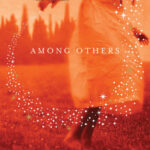

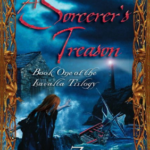

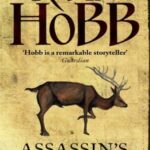

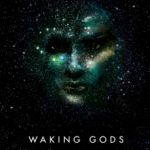
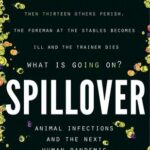

It’s so interesting to see how tastes change over time!
Here is my Top Ten Tuesday.
Sometimes I don’t even get it! Like my interest in non-fiction snuck up on me completely. I never imagined I’d read so much of it!
The Suck Fairy! I love it. So true.
Happy TTT!
Susan
http://www.blogginboutbooks.com
It’s such an eloquent way of putting it!
I read Spillover during COVID and it was informative — and increased my doubt about the perils of the ever-evolving covid bug, since evolutionary pressure should make future iterations LESS disruptive to the hosts rather than more..
That’s not necessarily a given at all, and if Quammen claimed that that’s a general rule in Spillover (which I don’t recall), he was unfortunately theorising far beyond his data. People have theorised this is a rule based on a few examples, influenza most notably, but those examples are themselves outliers, where we actually don’t understand the mechanism. There are mysterious things about the influenza data (like the fact that there are only ever a set number of strains circulating at a time: a new one arrives, and an old one dies out — but why?) that mean we shouldn’t generalise (quite apart from the fact that there are vast numbers of viruses and no reason to assume that any two — or any ten, or twenty, or hundred — are necessarily going to follow the same patterns).
Likewise, there are some suggestions that the various immunodeficiency viruses evolve to become harmless to their host species (and HIV is only deadly to us because it hasn’t co-evolved with us). That’s not a given at all in the short-term: co-evolution between SIV strains and their “normal” host species has been proceeding for a long, long time, so it can’t be taken as a model of how an emerging virus of a totally different family might behave. HIV has been around a lot longer than SARS-CoV-2, and we haven’t started to adapt to it.
(Though if someone wants to insist upon simian immunodeficiency viruses as an example, they might want to consider the fact that we need to hit HIV from at least three different points at once in order to prevent treatment escape — in other words, a very small amount of evolutionary pressure produces a very different virus which can be immune to multiple forms of control at once, in a very short time. A single person infected with HIV is actually host to scores of pseudospecies, and it’s very easy to select for a pseudospecies that’s more deadly, not less. On the short term of one human lifespan, it’s more likely we’ll select for more deadly HIV, not less.)
We’ll know how SARS-CoV-2 co-evolves with us in a few thousand years (probably more than a few, given the slow pace of human evolution due to our long generation times). In the short term, it has a generation time measured in days while ours is measured in years. There’s no proof at all that all viruses are always going to develop in a direction less harmful to host species in the short term (as long as they remain viable for transmission, the host need not survive), and for the longer term it’s also important to consider what host they’re evolving with. In a zoonotic virus, that doesn’t have to be humans.
The things we know about viruses are vanishingly small compared to the things we don’t know about viruses, so I’d always be extremely cautious about ever extrapolating what we know from one virus to tell us about another. 🙂
I feel the same way about Enid Blyton. The Magic Faraway Tree books were my favorites when I was young. I haven’t reread any of her books recently so I don’t know how obviously her prejudices will stand out to me now, but I’m just so turned off by her and I have no desire to ruin the memories I had of reading those books. I also have to laugh at Assassin’s Apprentice, because I completely agree that Fitz is such a whiner! He’s annoying as hell, but I did enjoy the series because it was a buddy read with some friends, and we all had fun complaining about him!
Also, yes please read The Light Bearer!
Yeah, I read some of Blyton’s books as an adult when I studied children’s fiction, and it was… sadly disillusioning.
I remember enjoying Assassin’s Apprentice a lot, though even then I was waaaay more drawn to Verity and the Fool…
Fitz grows up and I am hard pressed to decide who I love most Fitz, Fool or Nighteyes. Fitz is Sacrifice and he is worthy of this title.
Over time, our tastes change, as do what is published.
Pam @ Read! Bake! Create!
https://readbakecreate.com/the-cs-have-it-ten-titles-starting-with-c/
For sure, and also just beyond taste, life experiences colour things as well. Like a lot of the SF/F I read as a teen is nominally still up my street, but specific factors in it wouldn’t work for me now…
I read all the Sabriel books, all six, or was it seven. They were dark but I loved them all. I rad them as an adult.
I think I read them when I was about eighteen, maybe? Only the first three were out at that time — not sure where exactly I got up to before I stopped being as interested. Maybe Clariel?
I am on a quest to read all the 1001 Children’s Books You Must Read, and the problems you face in rereading Blyton are problems I often face in reading these old stories.
Yeah… And sometimes I can put that aside, definitely did when studying them for example. But sometimes life is just too short to spend time with that sort of thing!
I’ve wondered about rereading Among Others too — I loved it so much, and wonder if it would have as big an impact if I went back to it. I loved the entire Sleeping Giants trilogy! That’s a series I do hope to reread someday.
I think Among Others is definitely going to hit me differently now. But maybe in a good way!
Great post this week! I love the concept of the Suck Fairy, how brilliant, because it’s so true. And I’m kind of torn about seeing some books from my TBR on here – a little happy because you clearly liked them a lot at some point, but also a little sad because sometimes they were books you outgrew, which makes me wonder how I’d view them reading them for the first time now.
Most of these, I think I’d like again? But maybe differently. I actually wonder if I might like Under Heaven more this time, for example.
I haven’t read any of these, but I agree. Rereading often makes books stick even more for me, and I always discover something new!
Yes, normally rereading is so rewarding!
I love the concept of Suck Fairy. I had such a bad experience re-reading a book in my twenties that I’d loved in my teens that I just don’t re-read books as a rule. There are so many new books that this hasn’t proved to be a problem.
I reread a lot for comfort/familiarity — sometimes I just don’t want to read something new, but I do want to read. There are some books which have really richly rewarded that!